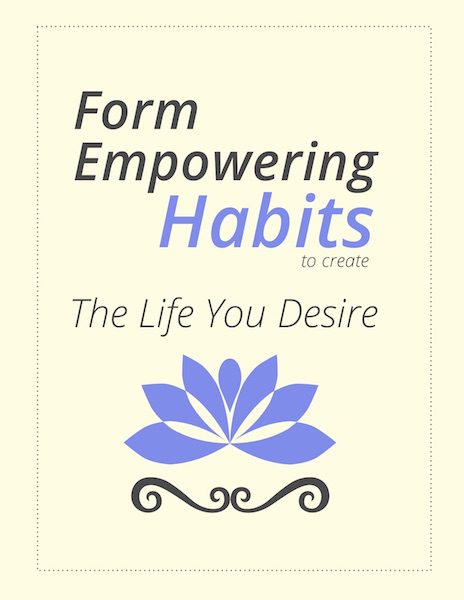
11 Ways to Break Out of Your Comfort Zone
11 Ways to Break Out of Your Comfort Zone
Your comfort zone is, well, comfortable. However, it’s a trap. Nothing new or spectacular happens in that comfortable place. Nothing changes.
If you want to grow and experience new things, it’s necessary to move beyond your comfort zone. This is easier said than done. 11 Ways to Break Out of Your Comfort Zone
Your brain makes your comfort zone feel good, because it believes that’s where you’re safe. The only way to go outside your comfort zone is to endure some discomfort. Fortunately, there are ways to minimize the discomfort.
With time, you can teach yourself to enjoy this uncomfortable feeling, because you understand the potential it holds.
Try these techniques to break out of your comfort zone: 11 Ways to Break Out of Your Comfort Zone
1. Put your awareness on your surroundings. What ultimately makes you feel emotionally uncomfortable are your thoughts. You imagine the worst. You ruminate. You create stress and then proceed to magnify it.
> One way to short-circuit this process is turn your attention outward and focus on your environment. When you feel uncomfortable, focus on what you can see, hear, taste, smell, and touch.
2. Mentally rehearse. Mental rehearsal can be just as real to your brain as the real thing. Before acting outside of your comfort zone, mentally rehearse your actions and success in that situation. The more you practice (in your mind), the easier it will be for you when the time comes to physically do it.
> This can easily be done in bed just before falling asleep and immediately after awakening. 11 Ways to Break Out of Your Comfort Zone
> These are two powerful moments everyone should avoid wasting!
3. Change your wardrobe. You’re accustomed to dressing a certain way. Dressing in your usual manner doesn’t evoke any anxiety. An effective way to turn up the heat a bit is to change your style. You’ll feel slightly out of place, and at least a few people are bound to draw attention to the change.
4. Take a new route home. Shake things up a bit by taking a completely different route home. You never know what you’ll see that you’ve never seen before.
5. Give someone a compliment. Giving compliments can be a little nerve-racking. After all, you don’t know how they’ll take it. You also know that you’re putting them on the spot, because they’re forced to provide a reply. 11 Ways to Break Out of Your Comfort Zone
> However, it’s ultimately a positive experience for everyone involved and an effective way to stretch your comfort zone safely.
6. Spend time with risk-takers. The people you spend time with matters. Spend time with risk-takers, and you’re bound to feel a little bolder.
7. Compare the best and the worst outcomes. Many of the most rewarding opportunities in life have few downsides and huge upsides. 11 Ways to Break Out of Your Comfort Zone
> Approaching an attractive person and applying for a job over your head are two simple examples.
> There are plenty of options in life with great upside and minimal downside. Realizing this can reduce your anxiety.
8. Take tiny steps. Take the smallest step you can that would feel like progress. Continue this process and eventually you’ll reach the end point and achieve what you set out to do!
9. Involve a friend. Take a friend along with you. Do you want to become comfortable talking to strangers? Would you like to take salsa lessons? Drag a friend along with you to any activity you’d like to try. You’ll have support and you won’t feel alone.
10. Pretend you’re a brave person. Imagine you’re an actor. How would you think, stand, and behave if you had to pretend you were brave? Become that person and take action.
11. Try something new. Take up a new activity that isn’t very threatening. It could be trying a new restaurant, going to see a play, dusting off your bike and going for a ride, learning to ride a motorcycle, or taking tennis lessons.
Have the courage to leave your comfort zone behind if only for a little time each week. You and your life will grow in new and interesting ways.
Remember: There’s nothing for you in your comfort zone besides comfort. Your life can be about much more than that!
11 Ways to Break Out of Your Comfort Zone
What’s your level of emotional intelligence?
Find out if your emotional intelligence is helping or hindering your growth! .
11 Ways to Break Out of Your Comfort Zone

I am a Board Certified Life Coach, a Board Certified Health Coach, and a teacher of Mindfulness Living who helps people unlock their potential and live life on Purpose
Receive, via email, our Action Guides, EBooks, Worksheets, Checklist, and Life Tips we only share with our communtiy
Don't Wait Any Longer. Start Forging Your Own Path Today!
How to Fight Negative Thoughts and Feelings
https://www.psychologies.co.uk/5-small-steps-being-brave https://www.skillsyouneed.com/ps/courage.html https://supportconnection.org/on-being-brave/ https://www.inc.com/jeff-haden/how-to-be-brave-when-youre-nervous-scared-4-simple-steps.html https://thoughtcatalog.com/kovie-biakolo/2015/12/what-it-really-means-to-be-brave/








